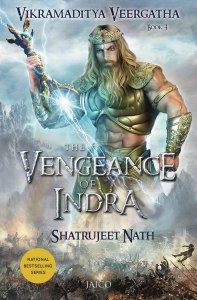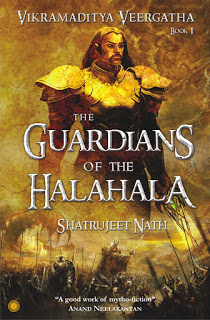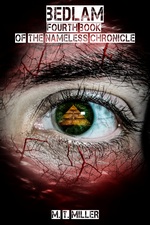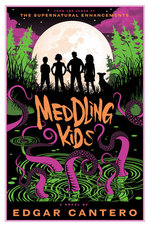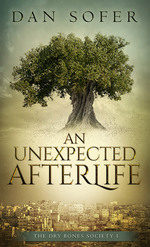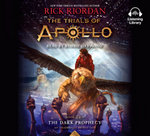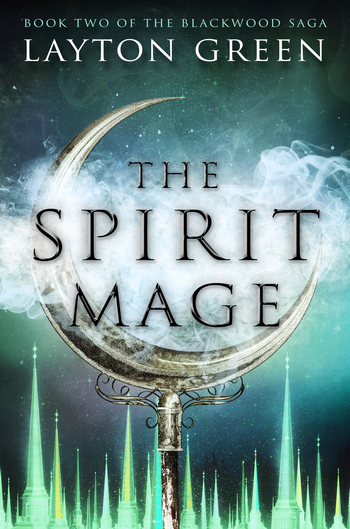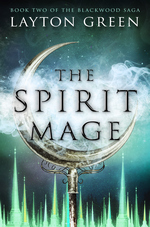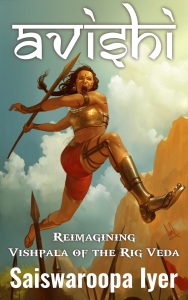~ Release Day Blitz ~
Avishi by Saiswaroopa Iyer
12th August, 2017
Long before the times of Draupadi and Sita
Immortalised in the hymns of the Rig Veda
But largely forgotten to the memory of India
Is the Warrior Queen with an iron leg, Vishpala
Brought up in the pristine forest school of Naimisha, Avishi reaches the republic of Ashtagani in search of her destiny. When Khela, the oppressive King of the neighbouring Vrishabhavati begins to overwhelm and invade Ashtagani, Avishi rises to protect her settlement. But peril pursues her everywhere.
Separated from her love, her settlement broken, with a brutal injury needing amputation of her leg, can Avishi overcome Khela?
Read an Excerpt
“I am the Queen! This will be my throne!” The seven-year-old chirped leaping from the middle of the porch towards the broken mortar which served as a mock throne. “You will be my guard!”
“Guard?” the man pondered scratching his unkempt beard.
“No.” He shook his head and smiled seeing her indignant eyes. “I will be the Queen’s elephant.” He beamed.
Sukratu stepped out of the house to see his daughter in action, perching herself on the tramp Loha’s back, pretending in all earnestness that he was her elephant. He smiled and was about to set out for his duty as the night guard of the King. A sudden lightning appeared in the eastern skies. Sukratu had barely walked a few paces when a deafening thunder made him instinctively turn towards home. He heaved a sigh, finding Loha shielding the girl as if he would, his own child.
“Father, don’t go.” The girl pleaded.
Sukratu smiled and shifted his gaze towards the sky. He saw dark clouds loom over the city. The monsoon winds had started to make their presence felt. He had to reach the palace soon. “Isn’t my little Queen brave?” He called out.
The girl nodded. He saw the fear fade. From her eyes. From her heart. She knew she was the queen! Pride filled his heart. His mind ached to stay home but duty beckoned. Tearing his gaze away from the one he treasured the most in his life, braving the drizzle that would soon turn into a storm, he unwillingly walked towards the King’s residence. Sukratu’s house was in the third ring of the concentric structure of Vrishabhavati. In the centre, was the structure, that served as the residence of the king and as the centre of all trade activity of the city. Here no wealth or goods could change hands without the king’s knowledge and approval. The residences of the noblemen formed the two rings around it. The guards and soldiers forming the outermost circle with the citizens living around them.
As per the protocol, Sukratu approached General Ugra’s residence quite ahead of his reporting time— an hour before the moonrise. He walked into the empty courtyard. But the rain made it impossible for him to stand there any longer. He knocked at the giant wooden door fervently. The doors creaked as a strange woman clad in a dark indigo garment opened them and glared at him with a frown on her forehead.
General Ugra, Sukratu knew was never faithful to one woman. His superior’s romantic exploits were not his concern either. But something about the woman at the door disconcerted him. “Please let General Ugra know that…”
“He has already left for the palace!” The woman frowned before attempting to shut the door.
“What? How ca…” Sukratu’s words hung in air as the door slammed on his face and the woman disappeared from his line of vision all of a sudden. Something did not feel right. He knocked at the door again. Firmly this time, as though seeking answers. Any change in the reporting time would have been announced the day before and he remembered that nothing of the sort had happened. His knocks went unanswered. Frowning and muttering under his breath, Sukratu hurried towards an empty cowshed three houses away from Ugra’s place hoping to catch his companions who he knew would be equally surprised.
The first to arrive was Khela, the eighteen-year-old guard, holding a metal shield above his head. The newest addition to the King’s guard, Khela was related to General Ugra and Sukratu felt that his position in the King’s guard was largely a result of undue favours that Ugra showered upon an otherwise impudent boy.
“Sukratu! By the great Varuna, I should have come to you earlier!” Khela hurried towards him. Pausing for breath, he added. “Our platoon has been given a relief tonight! It was a sudden decision and I personally informed all the others.”
“Relief for tonight? That happens only when…”
“Our guarding hours change from night to day!” Khela completed in a hurry. “Now, come with me.” He turned towards the western direction and the javelin he held started to sway dangerously and came close to grazing Sukratu’s arm.
The older guard’s instincts made him dodge the cut. “Where?” Sukratu hissed, visibly annoyed, first with the fact that he was kept in dark about the change in guarding hours and then about Khela’s irreverent behaviour. “And watch who your weapon hurts, boy.”
Khela shrugged and changed the position of his weapon. “We are now going to the place.” He winked, stretching his hand in the direction. “Follow me, this is the only night we get to have some fun.”
Sukratu did not move. The place he knew implied the tavern where wine was served. “We cannot drink tonight, Khela. When do we have to report tomorrow? By sunrise?”
“You ask too many questions. The rest of us are there too!”
“That does not answer my question.”
“Well, I don’t know, and I don’t care to. The palace is paying for the wine. Are you coming or not?”
The last sentence sounded more like a threat than an invite. Sukratu had all the mind to give the youth a piece of his mind and storm back home. His daughter would be overjoyed to see him before she went to sleep. It gnawed at Sukratu’s heart every day to leave her under the care of Loha— the tramp who had begged him for shelter about six months ago and then became a part of his life. The girl liked him instantly and had begged Sukratu to let Loha live with them and he, despite his misgivings about the tramp’s origins and his unkempt appearance, could not refuse his only daughter. Over time, Sukratu felt grateful for Loha’s company. Now his daughter did not have to be all by herself every night. The guard’s home would have been unguarded if not for that stranger. Sukratu brushed aside these thoughts and had almost decided to go home when the thought of meeting other senior guards and clarifying the confusion struck him. He followed Khela’s lead, making no attempt to hide his displeasure.
When they reached the tavern, Sukratu to his dismay, found many of his brothers in arms deeply drunk. “When did they reach here and when did they…”
“Quite some time before. I just forgot to tell you in advance!”
Sukratu’s eyes scrutinized the men and women of the tavern who were serving wine to the guards. There were no other citizens or travellers in the tavern.
“Just for us, the whole night!” Khela said as if reading his thoughts, bringing him an earthen goblet.
The older guard accepted the goblet taking his first sip with a sense of foreboding.
“Where were you all the time, old friend?” The voice belonged to Tunga one of the senior guards in the platoon.
The grin on his friend’s face brought a smile to Sukratu’s lips. “Tunga, what is this about the sudden change in our guarding hours?”
“The King… that imbecile, has finally remembered that we are human too!” Tunga guffawed, emptying his goblet, waving vigorously at a woman of the tavern who obliged with a seductive wink.
She approached them, skilfully distributing her attention between both the men, winking at Tunga and pouting her lips at Sukratu. Her brows rose at Sukratu’s filled cup. “Don’t keep the Sura nor this Sundari waiting, my love…” Serving Tunga his wine, she placed her fingers upon Sukratu’s shoulders, digging her nails into his skin for a moment locking her gaze with his and turned around swiftly, letting her light upper garment rest on his face for a fleeting moment.
It was a wilful invitation and Sukratu knew it. His attention though was caught by the colour of the garment. The Indigo hued garment! All the women of the tavern wore clothes of the same colour. So did the woman he saw in General Ugra’s house! Was Ugra at home while the woman lied that he was at the palace? If the General and the whole platoon of the night guard were lying down drunk, who was minding the security of the King? Sukratu looked at the rest of the guards. No one seemed sober enough to talk. The only sober man Khela had disappeared!
“By the great Varuna!” Sukratu exclaimed aloud and rushed out, pushing the woman who tried to stop him away.
He raced to the King’s residence, as fast as his legs could carry him. The huge wooden gates of the structure were closed and secured from inside. The rain lashed drowning his cries. Misgivings regarding the King’s welfare made him shudder. He had to meet General Ugra. Something told him that the General had his own reasons to send the whole platoon of guards to enjoy a drunk night. He was a guard who had sworn to protect the King with his life. The general owed him an answer. Sukratu rushed to General Ugra’s house determined to confront him.
That, Sukratu realized was the biggest mistake of his life.
At the gates of the general’s residence he saw a familiar figure hurrying out of his house, a heavy bundle on his shoulders. “General Ugra!” he called out, feeling relieved.
The figure started, and the bundle fell to the ground. Sukratu came to a sudden halt as he realized it wasn’t a bundle after all, but a blood-drenched corpse. A stroke of lightning from the sky revealed the face and the very familiar greying curls. Sukratu froze for a long moment before he could speak.
“K… King…”
Something hit him on the head even before he could utter the name. Sukratu staggered, reeling at the impact, clutching at his long sword in a vain attempt to defend the next move.
“Finish him!” The General shout behind him.
Before he turned around, Sukratu felt the cold metal tear into his back. Lightning struck revealing the contours of the person. Khela! The javelin stabbed him again. Thunder drowned his screams. Falling to the ground with the weapon still stuck to his back, Sukratu lifted his sword and managed to slash Khela’s palm though the latter, unlike him was vigilant and alert. Crawling away from the menacing duo, knowing very well that he could not last more than a few moments, Sukratu’s thoughts, went to his innocent daughter. She would now languish as an orphan remaining in dark about the monsters who killed her father. Or would they kill her too?
Sukratu would never know.
About the Author:
Saiswaroopa is an IITian and a former investment analyst turned author. Her keen interest in ancient Indian history, literature and culture made her take to writing. Her debut novel Abhaya, set in the times of Mahabharata was published in 2015. Avishi, her second novel set in Vedic India explores the legend of India’s first mentioned female warrior queen Vishpala.
She holds a certificate in Puranas from Oxford Centre for Hindu Studies. She is also trained in Carnatic Classical music and has won a state level gold medal from Tirumala Tirupati Devasthanams.
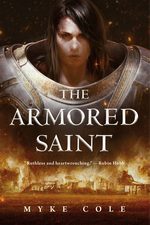 The Armored Saint
The Armored Saint





